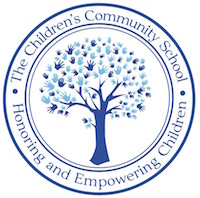Hello, all. As we head into our second week at home, I just want to send out a reminder about how I hope you’ll use this newsletter: Right now, home-schooling is working for my children’s needs for structure and order and for my own mental health needs for predictability in a time of uncertainty. If the ideas here are supportive for you, I hope you’ll try them out! If getting this newsletter stresses you out because your children are fighting you on home-schooling or your schedule doesn’t allow, or any other reason, I hope you’ll know that I see you and I encourage you to do whatever works for the needs of your children and your mental health: no pressure, no judgment, just sharing ideas.
Shifting gears: as promised, I’m going to spend a few days sharing some ideas from the Reading/Writing/Math part of our day. I thought I’d get us started on Writing today because creating stories is such an important way for our children to feel empowered at this time of uncertainty and fear. (Don’t stop reading because you think you’re child is too young to write- I promise I’ll walk you through that.). When we write stories, we process our thoughts, hopes and fears and, for a short time, we get to become the ultimate architects of the world’s we create- something we could all use a little bit of right now! The most important thing that we as parents and educators can do to promote the development of our children as writers is to imbue them with the understanding that they can be authors right now- it’s not just for grown-ups. So let’s get started!
Supplies for writing time:
It seems like we’re going to be in this boat for a while, so it’s fun to mix things up! I find that a simple, blank sheet of paper often does the trick, but on different days, try offering writing supplies such as:
- Folded and then stapled paper booklets of varying sizes. They will be charmed to make teeny tiny books one day and enormous books another.
- Paper booklets with covers made from construction paper or (jazzy!) wrapping paper
- Paper that you draw large rectangles on to create a “comic book” format, if that’s an interest for your child
- Random pads and notebooks that people give you as presents and you never know what to do with them- this is the time to break them out!
Try offering different writing supplies on different days. Crayons, pencils, colored pencils, markers are a great start but I’d also encourage you to dig through that messy drawer everyone has in their kitchen and find all the different kinds of pens you can: there’s nothing like the thrill of being allowed to write with a “grown up pen”!
Ways to support your child in writing stories:
There are so many different ways to invite children to write their stories with our support! Here’s a few that will work with kids at some different developmental stages:
- For the younger learners, getting started on writing might look like your child sharing a story about a picture they have drawn. You can then simply record their words on the picture. I tend to ask kids whether I may write the words on the front or the back of their paper and also what marker color they prefer for me to write in to convey to them that this is their work that they have ownership over.
- For any age learner: Is your child explaining an interesting structure they have built to you or telling you what just happened in their pretend-play game? Grab a paper and tell them, “Just a minute. I really want to write down your words so that I won’t forget them because this is a very interesting story. Tell me slowly- I don’t want to miss any of the details!” Then record for them. I wouldn’t interrupt the flow of their ideas too much by asking them to help you spell words, etc. Just let them feel the power and delight of having an important and interesting story to tell and the fun that comes with getting to hold onto that story forever.
- Many children of all developmental stages enjoy writing in books and journals. Depending on your child’s development and temperament this may look like:
-
- writing scribbles or small shapes across a page
- Writing random strings of letters and asking you what they spell (it’s always fun to read aloud the nonsense sounds together!)
- Writing random strings of letters and telling you words what they spell
- Asking you to write down specific words for them to copy
- Sounding out words or parts of words for themselves or with an adult “stretching out the sounds” for them (such as writing “ILU” for “I love you”). I call this “kid writing” and always encourage it. I sometimes ask if they would like me to write in “book writing” underneath their words or not; it’s nice to add book writing so that we can remember what they were trying to write but it’s more important that we empower them to understand that this is their work and it fully belongs to them.
All of these are important and appropriate stages for your child to be in (and these are only some of the myriad ways that children may explore writing)! If you have questions about planning for your individual child’s development, reach out to me- I love to geek out over things like that!
Thank you all for being in this with me. I am in this with you too.
In Solidarity,
Carrie
